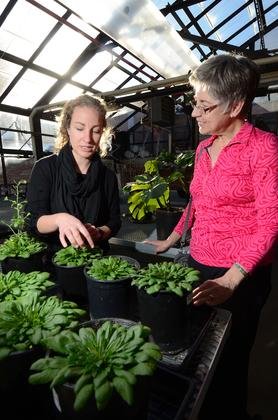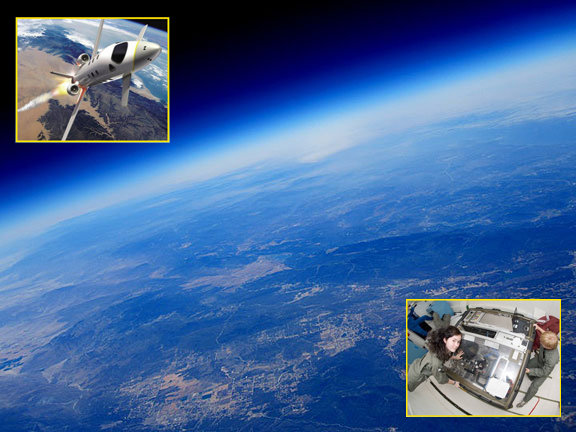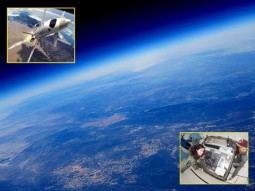Plants in Space (start time 04:36) What would you miss if you were to spend an extended time in space—driving a car? Going to the movies? Hiking? Playing with your dog? Gravity, maybe? Or maybe something as simple as eating good, nutritious vegetables. How On Earth’s Beth Bartel speaks with University of Colorado undergraduate researcher Lizzy Lombardi about harvesting healthier veggies for our astronauts. Or, as we like to think about it, plants in space.
 Relativity (start time 13:30) Albert Einstein published his special theory of relativity in 1905 and his general theory in 1915. Special relativity revealed bizarre and powerful ideas, including the famous equation E=mc2, but the basic theory hinges on a single realization: all observers, no matter how fast they are moving, always measure the same speed of light in space. A decade later, general relativity, the result of Einstein’s “happiest thought” that “the gravitation field has only a relative existence” unseated Newton’s law of gravitation. General relativity has passed every observation trial—so far. Relativity is important in everyday experience, for example enabling the incredible accuracy of the Global Positioning System, but the theory, especially the general form, can be a tough mathematical challenge. Boulder astrophysicist Dr. Jeffrey Bennett’s just-published book, What Is Relativity? An Intuitive Introduction to Einstein’s Ideas, and Why They Matter, gently straightens the curved spacetime. Join Jeff and host Jim Pullen live in the studio to learn why ‘black holes don’t suck’!
Relativity (start time 13:30) Albert Einstein published his special theory of relativity in 1905 and his general theory in 1915. Special relativity revealed bizarre and powerful ideas, including the famous equation E=mc2, but the basic theory hinges on a single realization: all observers, no matter how fast they are moving, always measure the same speed of light in space. A decade later, general relativity, the result of Einstein’s “happiest thought” that “the gravitation field has only a relative existence” unseated Newton’s law of gravitation. General relativity has passed every observation trial—so far. Relativity is important in everyday experience, for example enabling the incredible accuracy of the Global Positioning System, but the theory, especially the general form, can be a tough mathematical challenge. Boulder astrophysicist Dr. Jeffrey Bennett’s just-published book, What Is Relativity? An Intuitive Introduction to Einstein’s Ideas, and Why They Matter, gently straightens the curved spacetime. Join Jeff and host Jim Pullen live in the studio to learn why ‘black holes don’t suck’!
Producer: Beth Bartel
Engineer: Jim Pullen
Executive Producer: Jim Pullen
Additional contributions: Jane Palmer
Listen to the show:
Podcast: Play in new window | Download (Duration: 24:08 — 33.1MB)
Subscribe: RSS






